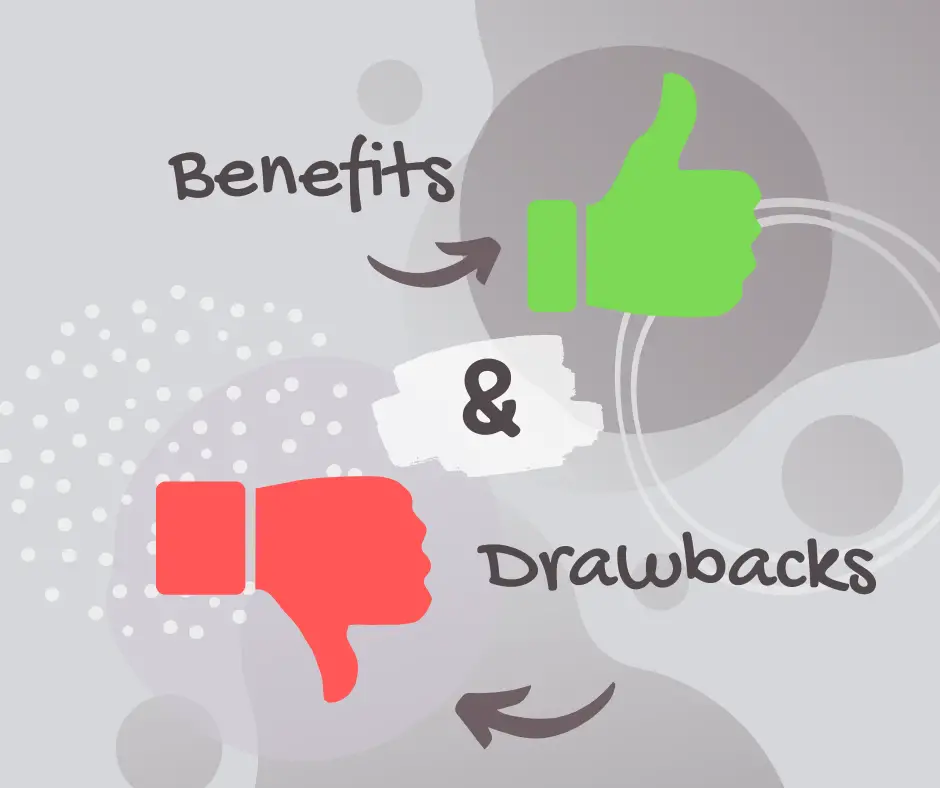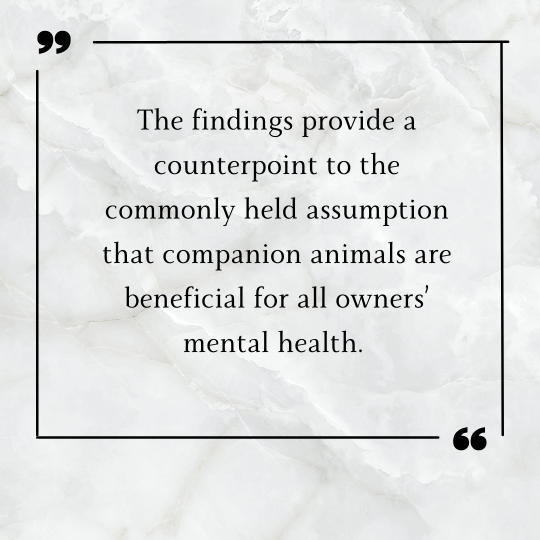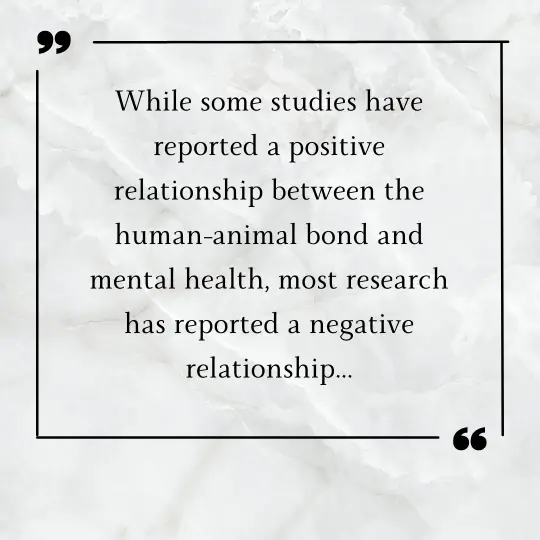It turns out that sometimes the pet ownership benefits either aren't as strong as we often believe or the drawbacks can be worse for some people. A recent (and small cohort) study in the UK looked at the "influence of animal ownership on mental health for people with severe mental illness." The results, along with mentions of prior studies showing drawbacks, are interesting. Let's take a look. Warning: It might challenge long-held assumptions.
The Study Details
- 170 cohort participants completed the survey
- 81 or 47.6% of them owned at least 1 pet
- Most perceived a strong bond with their companion animal
- "Severe mental illness" defined as those with a documented diagnosis of schizophrenia, other psychotic disorders, bipolar disorders or their DSM equivalents.
- Surveys done between May and August 2022
Pet Ownership Benefits for Those With Severe Mental Illness?
Not so fast. The researchers concluded the following:
"... regression analyses showed that owning an animal was not significantly associated with wellbeing, depression, anxiety, or loneliness scores. Likewise, the perceived strength of the human-animal bond was not significantly associated with animal species owned or wellbeing, depression, and anxiety scores."
and
"The findings provide a counterpoint to the commonly held assumption that companion animals are beneficial for all owners’ mental health."
Drawbacks of Pet Ownership on Mental Health
This study along with others cited in the full text of the published paper list these things as often being of detriment to the mental health of owners, including those with conditions considered mild or severe:
- Financial responsibilities
- Housing challenges such as finding rental housing that even allows pets
Stronger the Bond, the More Mental Health at Risk?
The paper reads in part ... "Evidence within the general population has suggested that strong bonds with companion animals may predict mental health vulnerability in owners (Antonacopoulos and Pychyl, 2010; Peacock et al., 2012)."
and
"While some studies have reported a positive relationship between the human-animal bond and mental health (Mahalski et al., 1988; Barker, 1999; Cohen, 2002), most research has reported a negative relationship (Antonacopoulos and Pychyl, 2010; Miltiades and Shearer, 2011; Peacock et al., 2012; Smolkovic et al., 2012; Lass-Hennemann et al., 2020). Specifically, stronger bonds to companion animals were associated with worse mental health and can predict mental health vulnerability in some research (Antonacopoulos and Pychyl, 2010; Peacock et al., 2012; Lass-Hennemann et al., 2022; Wells et al., 2022)."
Emphasis mine.
I know it's more complicated than this, but from my own life, I can see how strong bonds with dogs did result in greater emotional distress during times of illness and grief. Hence my book - Heart Dog: Surviving the Loss of Your Canine Soul Mate.






0 comments